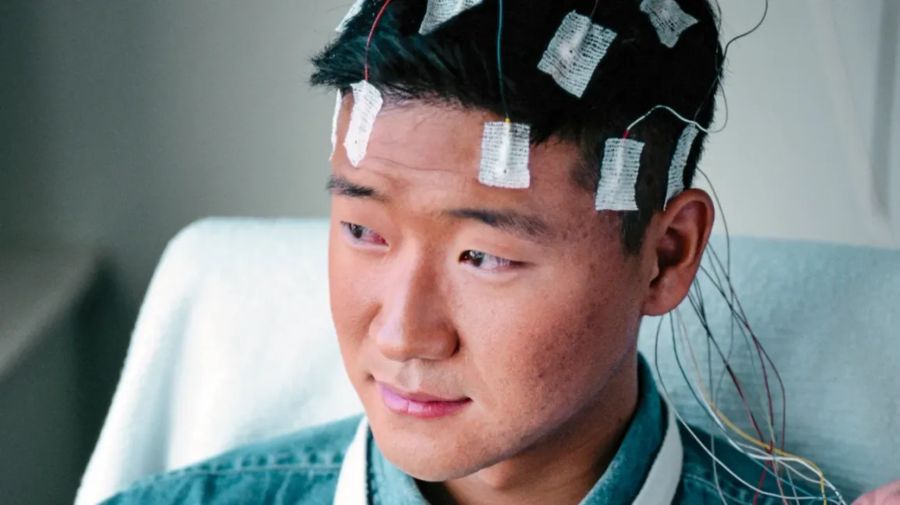Introduction
Autism Spectrum Disorder (ASD) is a unique developmental condition that affects each individual differently. It can impact social skills, communication, and behavior, often creating challenges for both the person with autism and their family. In Hong Kong, as awareness grows, more resources and therapies are emerging to support families navigating ASD.
Finding the right therapy is crucial for your child’s development. Early intervention can make a big difference in helping children improve their skills, boost independence, and thrive in daily life. This guide provides an overview of effective therapy for autism in Hong Kong to help you make the best choices for your child.
Understanding Autism Therapy in Hong Kong
The Landscape of Autism Therapy in Hong Kong
Growing Awareness and Support for Autism in Hong Kong
Hong Kong has made strides in recognizing and supporting people with autism. With the help of non-profit organizations, public campaigns, and advocacy groups, there’s greater understanding of autism and the need for effective therapy for autism in Hong Kong. More initiatives now promote inclusivity and aim to make everyday environments more accommodating for autistic individuals. Awareness isn’t just about support; it’s also about acceptance.
Accessibility Challenges for Autism Therapies
Accessing autism therapy can be challenging, especially with financial and geographic barriers. In Hong Kong, therapy services are more concentrated in urban areas, making it difficult for families in rural areas to find nearby resources. Costs can also add up, as private therapies may not be affordable for everyone. However, with the right guidance, families can find resources to make therapy more accessible.
Key Organizations and Resources for Autism in Hong Kong
Hong Kong has several key organizations that offer support, information, and access to effective therapy for autism in Hong Kong. Some of these include the Autism Partnership Foundation, the Hong Kong Autism Awareness Alliance, and Heep Hong Society. These organizations often provide workshops, support groups, and guidance on finding the right therapies.
Key Types of Autism Therapy Available in Hong Kong
Applied Behavior Analysis (ABA) Therapy
What is ABA Therapy and How Does it Work?
ABA is one of the most researched therapies for autism. It’s focused on understanding and improving behavior by rewarding positive actions and reducing negative ones. This therapy helps children improve their communication, social skills, and daily behaviors.
ABA Therapy Options in Hong Kong
In Hong Kong, ABA therapy is available at various centers, such as Autism Partnership Hong Kong. These centers offer sessions that cater to individual needs. ABA sessions may be costly, but some centers provide financial assistance or flexible payment plans.
Pros and Cons of ABA Therapy
ABA is effective for many children, especially in teaching essential skills and managing behavior. However, some people criticize it for its intensity and structured approach. It’s essential to weigh these factors and consult with providers to see if ABA suits your child.
Speech and Language Therapy
Benefits of Speech Therapy for Children with ASD
Speech therapy helps children with autism overcome communication challenges. Whether it’s building vocabulary, working on non-verbal skills, or improving pronunciation, speech therapy plays a critical role in connecting with others.
Availability of Speech Therapists in Hong Kong
Hong Kong offers access to qualified speech therapists through organizations like the Hong Kong Speech Therapy Centre. While waiting lists can be long, seeking early referrals can help. Look for certified therapists specializing in autism for the best results.
Occupational Therapy (OT)
Understanding OT and Its Impact on Autism
Occupational Therapy helps children with autism develop motor skills and improve their sensory processing. These skills are essential for daily life activities, like eating, dressing, and playing.
Choosing an Occupational Therapist in Hong Kong
OT is available at various centers across Hong Kong. Before selecting a therapist, consider their experience with autism and whether they offer tailored programs. Costs and frequency of sessions vary, but most therapists recommend regular sessions for consistent progress.
Social Skills Training
Developing Social Skills in Autistic Children
Social skills training helps children with autism learn how to interact with peers, understand social cues, and develop friendships. Goals for social skills training include improving eye contact, sharing, and group play.
Programs and Groups for Social Skills in Hong Kong
Support groups and clinics like the Heep Hong Society offer social skills programs specifically for autistic children. These programs often have different age groups to ensure children practice skills with peers at similar developmental stages.
Play Therapy
Why Play Therapy is Effective for ASD
Play therapy provides a safe environment for children to express themselves, explore emotions, and develop relationships. It can help autistic children build social and emotional skills while engaging in activities they enjoy.
Finding a Qualified Play Therapist in Hong Kong
Many private centers and therapists offer play therapy. Sessions can be customized for your child’s needs, focusing on areas like social skills, expression, and stress relief.
Other Emerging Therapies in Hong Kong
Music Therapy
Music therapy uses songs, rhythm, and instruments to help children with autism communicate and connect with others. It can be beneficial for improving mood, enhancing concentration, and reducing stress.
Animal-Assisted Therapy
In animal-assisted therapy, children interact with therapy animals, such as dogs or horses. It helps improve social interactions, reduce anxiety, and develop compassion. Though still emerging in Hong Kong, some centers are beginning to explore animal therapy options.
Practical Steps for Choosing the Right Therapy
Identifying Your Child’s Unique Needs
Understanding the Individualized Needs of Children with ASD
Each child with autism is unique, so it’s essential to understand their specific strengths, challenges, and interests. Observing behaviors and talking with therapists can help pinpoint the types of therapy that might be the best fit.
Conducting Initial Assessments
Assessments, like developmental or psychological evaluations, help clarify what your child might need. In Hong Kong, several assessment centers can provide initial evaluations and guidance on therapy options.
Evaluating Therapy Options
Factors to Consider in Therapy Selection
When selecting a therapy, consider factors like accessibility, cost, compatibility with your child’s needs, and language availability. Discuss these with the therapy provider to see if they can meet your child’s specific requirements.
Seeking Recommendations and Referrals
Connecting with other parents, support groups, or your child’s doctor can provide valuable insights. Parent support groups are an excellent resource for sharing feedback on local therapy providers.
Setting Realistic Goals and Expectations
Short-Term and Long-Term Goals for Therapy
Setting both short-term and long-term goals helps track progress. Achievable milestones, like learning a specific skill or managing behavior, give children and families motivation and direction.
Collaborating with Therapists and Educators
Working closely with your child’s therapist and teachers ensures that everyone is aligned with the therapy goals. Regular communication helps incorporate therapy techniques into everyday settings, such as home and school.
Financial Assistance and Funding for Autism Therapy in Hong Kong
Public and Government Support Programs
Available Public Funding and Subsidy Programs
Hong Kong’s government provides some funding and subsidies to help families access autism therapies. Eligibility requirements vary, so it’s essential to consult with local social services for guidance.
Additional Community Resources for Financial Support
Several charities and non-profits offer financial aid for therapy costs. Reaching out to local foundations or community groups can provide extra support.
Private Insurance and Therapy Coverage
Understanding Insurance Coverage for Autism Therapy
Many insurance plans offer partial coverage for therapies like speech and OT. Understanding your plan’s coverage options and knowing how to navigate claims can help ease financial strain.
Self-Paying and Budgeting for Therapy Costs
If you’re paying out of pocket, setting a sustainable budget can help manage costs. Discuss payment plans or package options with therapy providers to find a solution that works for your family.
Navigating the Emotional Journey as a Parent
Dealing with Diagnosis and Early Challenges
Coping with the Initial Diagnosis
Hearing that your child has autism can be overwhelming. It’s common to feel a mix of emotions. Giving yourself time to process and seeking support can make this journey smoother.
Building a Support Network
Connecting with other parents, family, and friends can help reduce isolation. Hong Kong has several parent support groups where you can share experiences, ask questions, and receive encouragement.
Staying Informed and Engaged
Ongoing Education on Autism and Therapy Options
Autism research and therapies are constantly evolving. Stay informed through trusted sources, such as local organizations, reputable websites, and autism research updates.
Self-Care for Parents and Caregivers
Your mental health is essential too. Taking time for self-care and seeking counseling, if needed, can help you stay resilient and provide the best support for your child.
Conclusion
Navigating autism therapy in Hong Kong can be challenging, but with the right resources, support, and guidance, you can find the best path for your child’s development. Remember, you are not alone on this journey—there is a community ready to support you.




